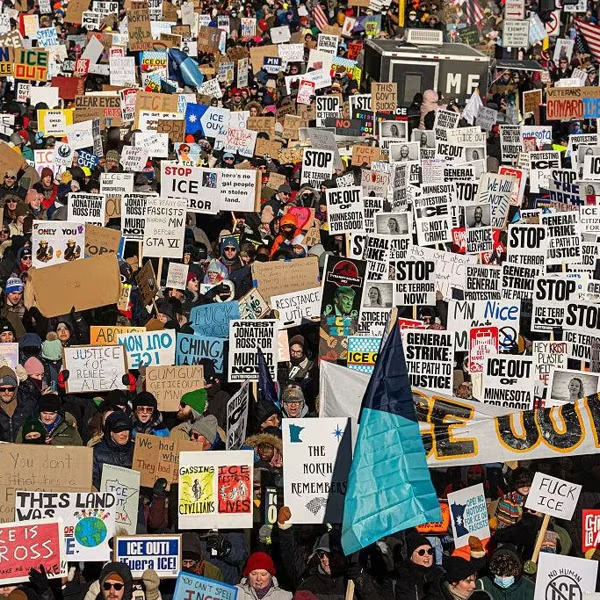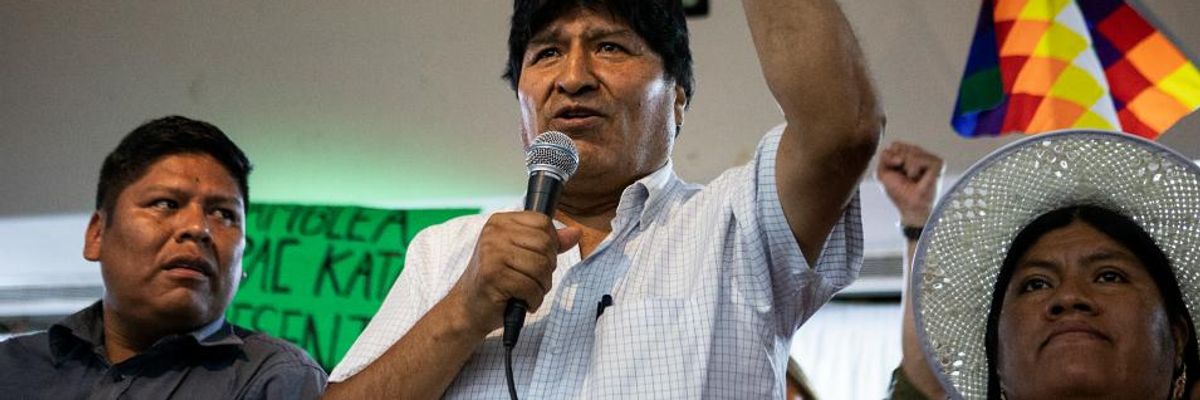Former Bolivian President Evo Morales on Friday accused the country's Supreme Electoral Tribunal of being "afraid of democracy" after the seven-member body late Thursday barred Morales from running for Senate on the grounds that he did not meet residency requirements.
Morales, who is currently living in Argentina after being ousted in a military coup last November, said during a press conference in Buenos Aires on Friday that the tribunal's decision was "illegal and unconstitutional" and alleged the U.S. government was involved in the ruling.
In a tweet Thursday night, Morales called the decision a "blow to democracy."
"The members of the TSE know I meet the requirements to be a candidate," added Morales, Bolivia's first indigenous president. The former president claimed that the ultimate goal of the current right-wing government of Jeanine Anez is to ban the Movement for Socialism (MAS), Morales' left-wing political party.
In December, the Anez government issued an arrest warrant against Morales, accusing the former president of "terrorism and sedition."
Bolivian elections are set for May 3, the first contest since the November coup that deposed Morales and paved the way for Anez to declare herself interim president. Bolivian lawmakers in November approved a measure calling for the new elections and barring Morales from participating.
Anez announced last month that her name will be on the presidential ballot in May after previously suggesting it would be improper for her to run.
A poll by Ciesmori released earlier this week found that Luis Arce, the MAS presidential candidate, is leading the presidential field with 31.6 percent support. Former Bolivian President Carlos Mesa polled in second place with 17% support and Anez ranked third with 16% support.
The ouster of Morales in November was followed by massive military and police repression of indigenous Bolivians, who took to the streets among others to voice opposition to the right-wing government. Days after declaring herself interim president on Nov. 12, Anez issued a decree shielding military and law enforcement from prosecution for gunning down demonstrators.
Earlier this week, Morales tweeted that in just three months in power the Anez government has "destroyed" the economic and social welfare policies he put in place during his nearly 14 years as president.
"This situation hurts us a lot," Morales said. "They want to get rid of all our social programs and privatize them."




